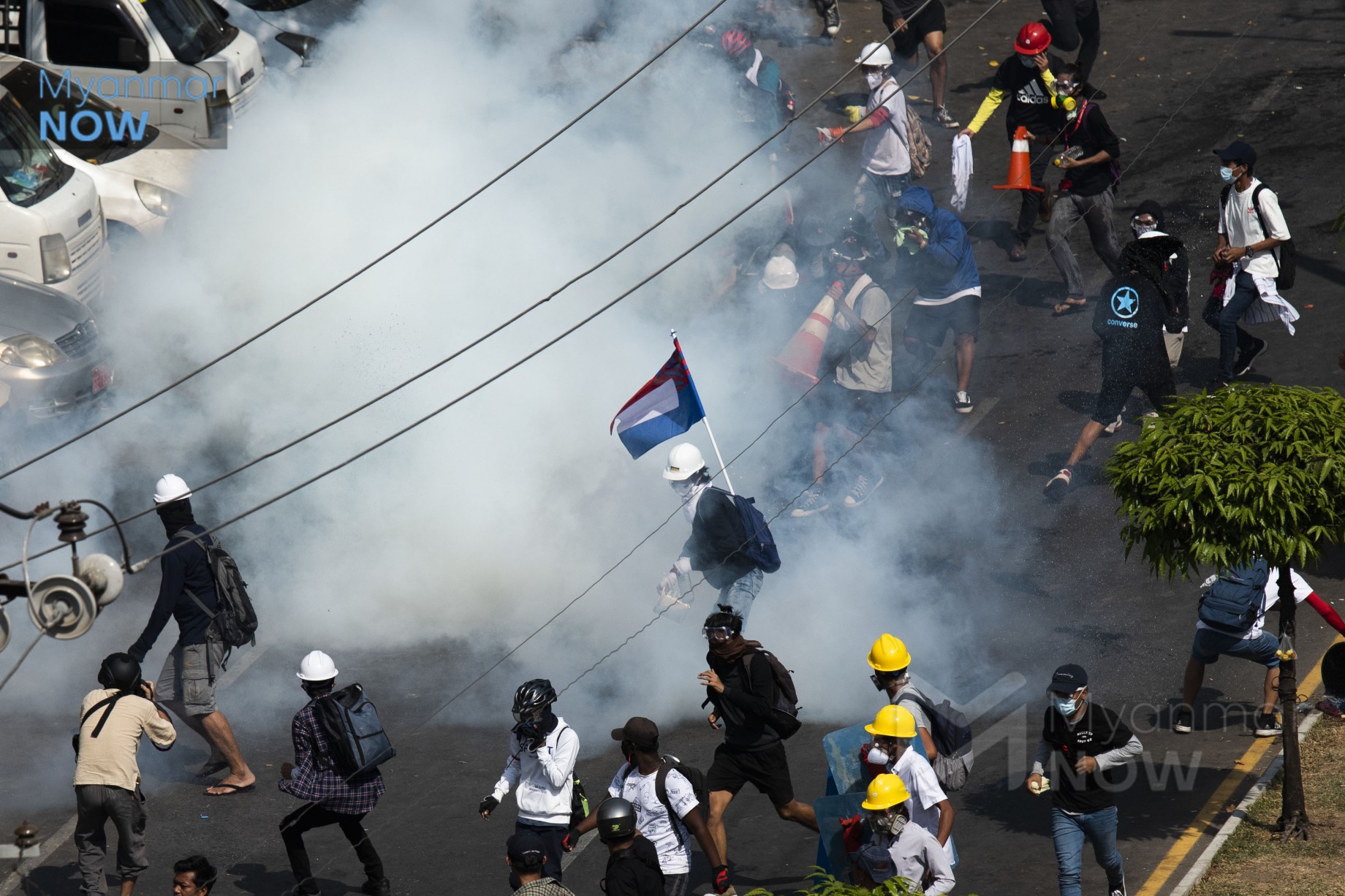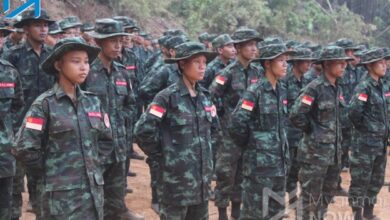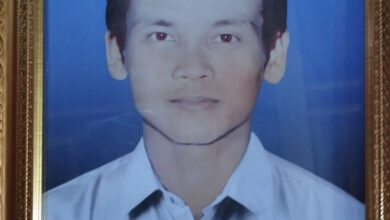
Australia’s Woodside Energy joined Total and Chevron in announcing its withdrawal from Myanmar’s oil and gas industry on Thursday.
In a statement to the Australian Stock Exchange, the company declared that “given the ongoing situation in Myanmar” it could no longer be involved in the drilling and exploration of the country’s offshore gas fields.
Woodside suspended drilling operations in the country following the military coup in February of last year. Thursday’s announcement formalises the company’s withdrawal from all offshore blocks, including A-6 in the Rakhine Basin, which it holds a production sharing contract with the military-owned Myanma Oil and Gas Enterprise (MOGE).
The move will cost the company a loss of US$209m in profits, Woodside’s statement said.
The Australian oil company’s decision comes one week after France’s Total and the US-based Chevron announced that they were ceasing operations in Myanmar following nearly a year of campaigning to shame the companies into ending their financial support for the junta.
A joint statement released by the campaign groups Global Myanmar Spring Revolution and the Blood Money Campaign (BMC) said that the departure of Woodside, Total and Chevron “sends a strong message” to investors, but noted that until the companies’ withdrawals are complete, remaining payments must be deposited into escrow accounts instead of the junta’s coffers.
“As Woodside, Total and Chevron transition to exiting Myanmar over many months there is still a risk that revenues flow to the junta through MOGE,” the statement said, noting that the additional payments during this time—estimated to be a six-month period—could amount to some US$250m that would otherwise go to the junta.
In an online press conference on Thursday, BMC youth activist Mulan warned that companies must not “avoid [taking] responsibility” and simply leave Myanmar, but instead participate in “responsible divestment” by listening to stakeholders who have demanded that revenues be immediately put into protected accounts.
“The announcements did not include [a commitment] that they would stop bankrolling the junta before they exit,” she explained. “That means they are still funding crimes against humanity in Myanmar.”
Lahpai Maw Htun Aung, deputy minister of electricity and energy within the underground National Unity Government (NUG) and acting director of the NUG’s own MOGE, said in the press conference that companies must coordinate their exits with the elected NUG administration if they are to be in line with human rights principles.
“Responsible divestment means that for the remainder of time, they will consult with the NUG, the true representative of the people of Myanmar,” he said.
He added that the calls extended to other companies still operating within Myanmar’s $1.4b oil and gas industry, including South Korea’s POSCO, Thai PTTEP and Malaysian Petronas.
A Woodside spokesperson did not comment directly on the NUG’s recommendations, but told Myanmar Now on Friday that the company was “withdrawing, not divesting.”
“The future ownership of the permit will be a matter for the remaining participants,” she said in an email.
In addition to the recent company withdrawals, campaigners from BMC and the Global Spring Revolution emphasised that it is “more urgent than ever” for countries like the US and those in the EU to introduce sanctions against the military-run MOGE to prevent further oil and gas revenue from reaching the junta.
Editor’s note: This article was updated on January 28 to include comment from Woodside.

![Resistance fighters holding heavy weapons ammunition in central Myanmar. (Photo: Freedom Revolution Force [FRF])](https://myanmar-now.org/en/wp-content/uploads/sites/5/2024/04/438869056_443267851680128_1706386881626943924_n-390x220.jpeg)

